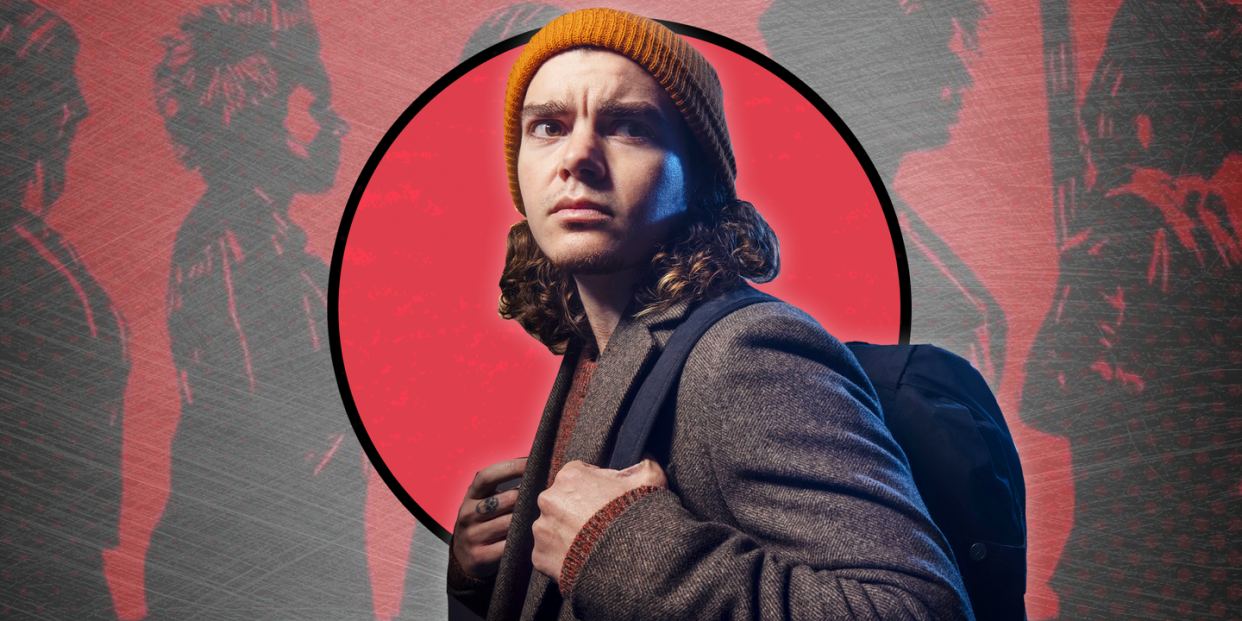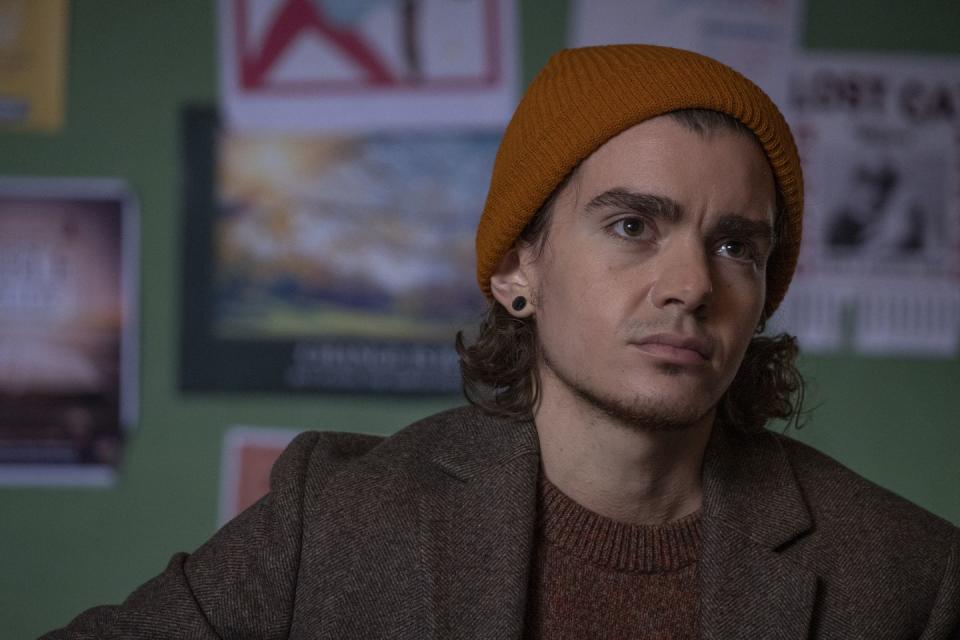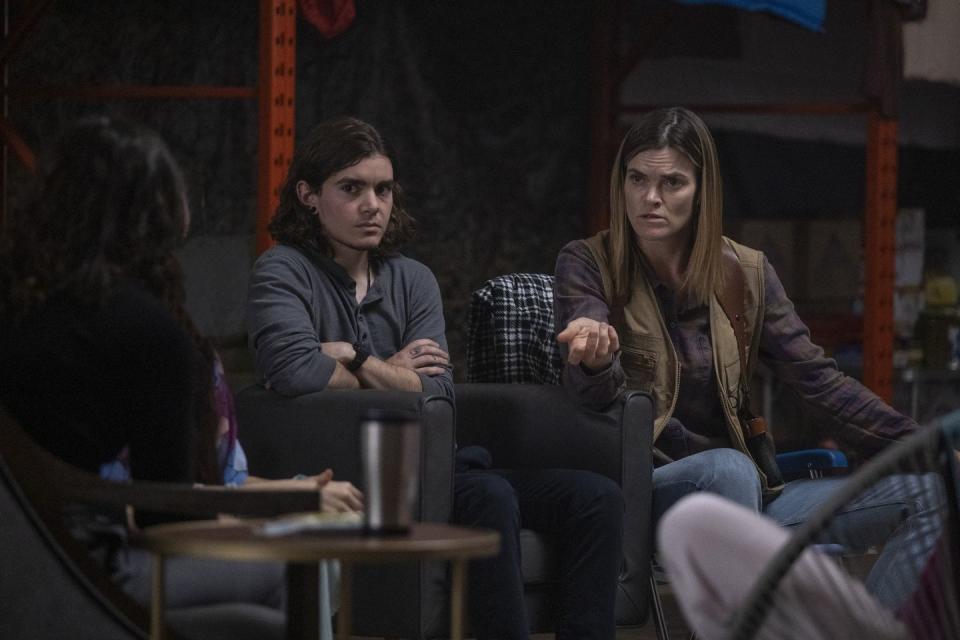Elliot Fletcher Believes 'Y: The Last Man' Highlights the 'Bulls**t' of the Gender Binary

FX's Y: The Last Man, based on Brian K. Vaughan's acclaimed 60-issue comic series of the same name, envisions a world in which all mammals with a Y chromosome have perished in a global event, save for the eponymous "last man", an escape artist named Yorick. However, a more accurate title might be The Last Cisgender Man, as the show frequently reminds viewers that trans men are men, and still very much exist in this world.
Elliot Fletcher plays Sam, the de facto male lead after Yorick. His character, a trans man, does not appear in the original graphic novel and was written particularly for the TV series, as a part of a conscious creative decision to be more inclusive and nuanced in how the show explores gender.
"We change it up a lot," Fletcher tells Men's Health. "The show reverses traditional gender roles, or what are thought to be traditional gender roles, because there are no cis men in this world, and cisgender is so often the assumed default."
Sam's storyline pairs him up with Hero (Olivia Thirlby), Yorick's sister and the estranged daughter of the newly-instated U.S. President (Diane Lane). While Sam is driven by a desire to find safety—and access to testosterone—in this chaotic new landscape, Hero's refusal to seek her mother's help leads her and Sam to the Daughters of the Amazon, a cult-like collective of formerly abused women led by the menacing Roxanne (Missi Pyle).
Narrative convention might lead the audience to fear for Sam as the show's sole trans character (Fletcher himself has spoken about the limited, tired tropes repeatedly applied to trans people on-screen in the Netflix documentary Disclosure). In a twist on those expectations, Sam is not placed in danger because he is trans, but rather because he is a man, in a space populated by cis women who have been radicalized into believing all men are inherently violent.

"I'm happy to be part of a show that subverts and questions gender, and really makes you think about how much we have played into the gender binary, or the patriarchy, or misogyny," he says. "I mean, for a lot of us, it's just really ingrained in us growing up. And so I think it is a real privilege to be part of something that makes you say, yeah, all of that's bullshit, that's not accurate. Women can do just as much as men can do. Trans men are men. Chromosomes have nothing to do with it."
Not that Sam's purpose as a character is to represent all trans men. In fact, the show goes out of its way to remind the viewer that no community is a monolith: when one character's ill-conceived comment reduces Sam to a political talking point, he is quick to tell her "Not everything is about me being trans." The same goes for Fletcher, whose favorite parts of working on Y: The Last Man by far were about honing his craft as an actor, whether it was forming a shared character backstory with Thirlby, or learning from powerhouses like Lane and Pyle.
"Watching and being able to work with Diane Lane was incredible; she is such a professional and knows exactly what she's doing," he says. "And I think what I've learned from Missi is just creating a whole character. Roxanne is such a force, and I know Missi has said that she's so connected to her. She loves Roxanne so much that it makes it hard not to like Roxanne, even though I know she's kind of the enemy, especially in Sam's circumstance. But Missi just formed her into such a specific character. I've never had the opportunity to do that. It's all so complex. I personally really love Roxanne. I know she's very, very evil, but I think she's such an awesome character."

Developing Sam further as a character in his own right, rather than as the voice of reason or a foil for Hero, is something that Fletcher is eager to do, should Y: The Last Man get a second season. "I want Sam to have his own journey," he says. "I would love to see him navigate the world of the event alone, or with some new people. The majority of what Sam struggles with is the fact that he was an artist prior to the event. Now what does he do? It would be interesting to see him create art in this new world, to see if it changes anything or awakens something in people, to see that artistic journey."
While the future of the show is currently in question—it has been canceled by FX, but showrunner Eliza Clark is eager to continue the story on another network—its season finale, which airs on November 1, folds Sam's storyline into the political intrigue which has become increasingly fraught throughout the season, culminating in a coup which unintentionally invokes the events of January 6. Couple that with the show's premise of a globally devastating crisis, and it can feel, at times, like watching an alternate version of the last year and a half playing out on TV.
"I was a little anxious when the show came out, just because I don't know if people want something that is, uh, tonally so dark," says Fletcher. "There's no way to avoid the potential parallels. I feel like that's in all the shows coming out right now: there are parallels because we were all working in the middle of it. So I just hope that people can see the larger picture, and see that it is a show about identity, and it goes much deeper than that surface level."
You Might Also Like

